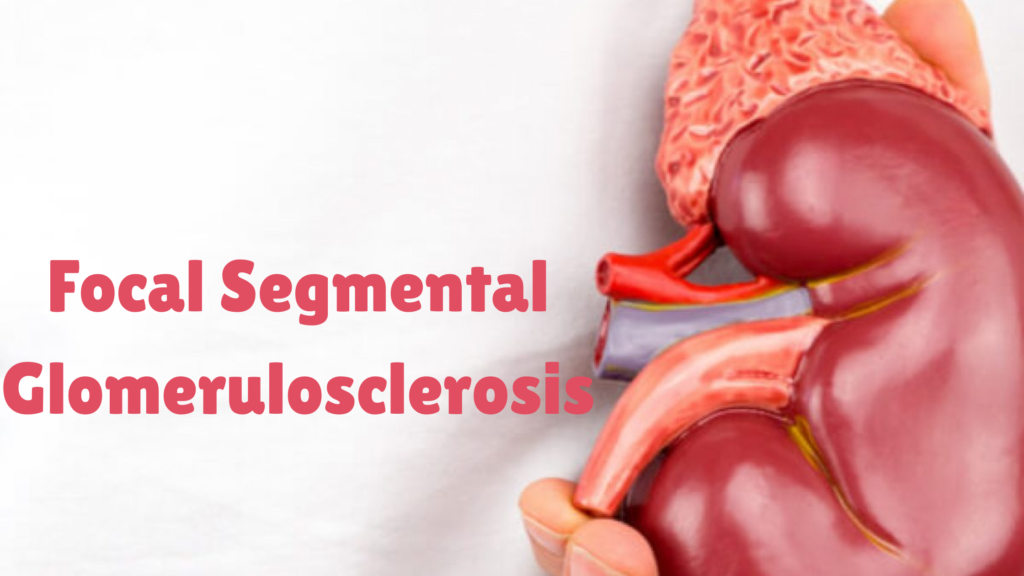Focal Segmental Glomerulosclerosis (FSGS) is a kidney disorder characterized by scarring (sclerosis) in parts of the kidney’s filtering units, known as glomeruli. The term “focal” indicates that only some glomeruli are affected, and “segmental” means that only parts of each affected glomerulus are involved.
🧬 Causes
FSGS can be classified into:
- Primary (Idiopathic) FSGS: The exact cause is unknown.
- Secondary FSGS: Results from other conditions such as:
- Obesitykidney.
- Sickle cell disease
- Infections (e.g., HIV, hepatitis)
- Drug toxicity (e.g., heroin, anabolic steroids)
- Other kidney diseases
- Genetic FSGS: Caused by inherited gene mutations.
⚠️ Symptoms
- Swelling (edema) in legs, ankles, or around the eyes
- Foamy urine due to high protein levels
- Weight gain from fluid retention
- High cholesterol
- Low protein levels in the bloodkidney.org
- Fatigue, poor appetite, and headaches in advanced stage
🧪 Diagnosis
Diagnosis typically involves:
- Urine tests to detect protein and blood
- Blood tests to assess kidney function and protein levels
- Kidney biopsy to examine tissue under a microscope
- Genetic testing to identify inherited mutationskidney.org
💊 Treatment
Treatment strategies include:
- Medications:
- Corticosteroids (e.g., prednisone)
- Immunosuppressants (e.g., cyclosporine, tacrolimus
- ACE inhibitors or ARBs to control blood pressure and reduce proteinuria
- Diuretics to manage edema
- Lifestyle Modifications:
- Low-sodium diet
- Weight management
- Regular physical activity
- Smoking cessation
- Advanced Treatments:
- Plasmapheresis in certain cases
- Dialysis or kidney transplant for end-stage kidney failure
🩺 Prognosis
The progression of FSGS varies:
- Some individuals respond well to treatment and maintain kidney function.
- Others may experience a decline leading to end-stage kidney disease, requiring dialysis or a kidney transplant.
Early diagnosis and tailored treatment plans are crucial for improving outcomes.
